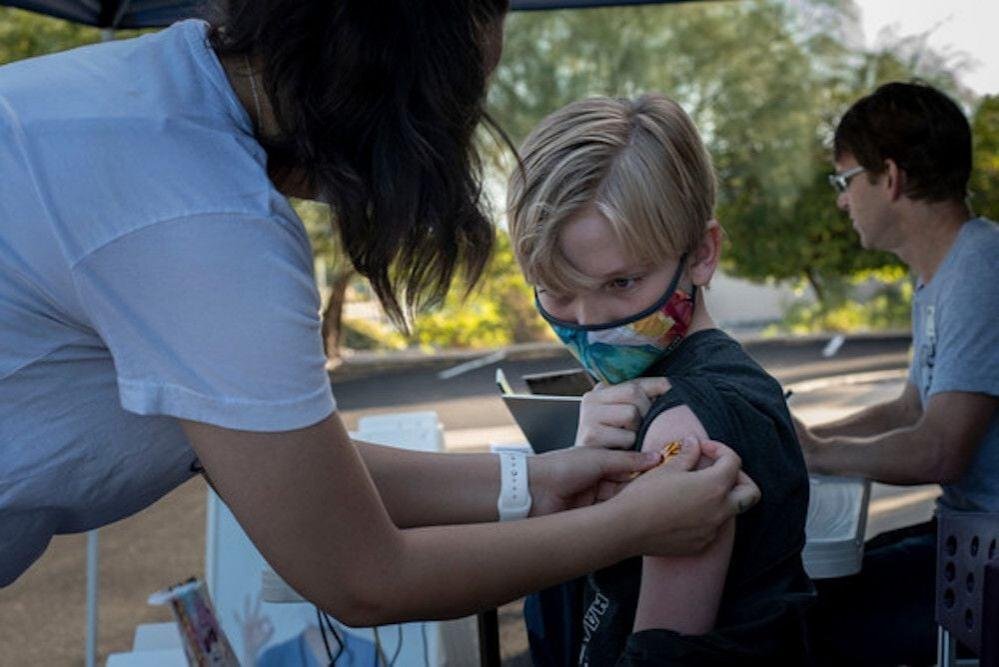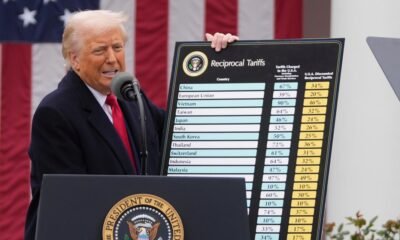family
Vaccines’ Triumph Overlooked by RFK Jr. & Trump: Essential Truths Revisited

Vaccinations have long served as a critical tool in protecting public health from infectious diseases. However, recent years have seen a slight dip in nationwide support for mandatory vaccine requirements for children in public schools.
Robert F. Kennedy Jr., a prominent critic of childhood vaccinations, has leveraged his presidential candidacy to amplify his stance. His extensive interview on the popular podcast “Joe Rogan Experience,” which boasts over 14 million subscribers, has significantly elevated his platform. Additionally, former President Donald Trump has voiced opposition to mandatory COVID-19 vaccinations in schools and, during a recorded phone call, appeared to align with Kennedy’s views on vaccines.
As a biochemist and molecular biologist who studies the impact of microbes on health and disease, and as an educator of medical students, I am deeply interested in public understanding of science. Here are some crucial corrections to common misconceptions perpetuated by vaccine skeptics like Kennedy:
Public health data from 1974 onwards indicate that vaccines have saved at least 154 million lives globally over the past five decades. Despite stringent safety monitoring in the U.S., the erroneous belief that vaccines cause autism endures. Numerous studies involving large populations worldwide have consistently shown no causal link between vaccines and autism.
Vaccine safety concerns often stem from misrepresented scientific research. For example, Kennedy cites a 2005 study that allegedly showed brain inflammation in vaccinated monkeys; however, the authors reported no severe medical complications. Similarly, a 2003 study that Kennedy claims found a 1,135% increase in autism rates among vaccinated children actually found no significant association between vaccines and developmental issues. Another unfounded assertion by Kennedy is that a 2002 study included a control group of infants fed mercury-contaminated tuna sandwiches, which is categorically false.
Moreover, Kennedy has raised alarm over aluminum adjuvants, which are used to enhance immune response. He is involved in legal action against Merck, asserting that aluminum in vaccines causes neurological disease. This claim misrepresents a 2020 study that found elevated aluminum levels in brain tissue from patients with Alzheimer’s, autism, and multiple sclerosis. Crucially, the study does not link the aluminum to vaccines, nor is it plausible that vaccine-derived aluminum would persist, given that dietary intake accounts for the majority of environmental exposure. Aluminum is typically expelled from the body within days.
Vaccines, like other pharmaceuticals, undergo rigorous clinical trials that include blinded, randomized, and placebo-controlled methodologies. These studies ensure unbiased results and transparency, with findings published in public domains. Data from vaccine trials for COVID-19, HPV, and rotavirus are publicly accessible, demonstrating the thorough vetting process vaccines undergo before approval.
Contrary to Kennedy’s assertions, vaccine manufacturers are not wholly immune from litigation. His lawsuit against Merck misinterprets the National Vaccine Injury Compensation Program (VICP), a federal initiative aimed at reducing frivolous lawsuits that could lead to vaccine shortages. Under the VICP, individuals claiming vaccine injuries can seek compensation through the U.S. Court of Federal Claims. Denied claims can still proceed to lawsuits against the manufacturers. Most VICP cases are settled without proving that a vaccine caused the alleged injuries, yet Kennedy and his associates misuse these settlements to argue that vaccines are unsafe.
Additionally, Kennedy’s assertion that good nutrition and sanitation can replace vaccinations is misleading. While improved infrastructure for health certainly reduces the severity and incidence of infectious diseases, it does not negate the need for vaccinations. Post-World War II America, despite its wealth and health infrastructure, still reported millions of cases of now-preventable diseases annually. The introduction and expansion of vaccines in the mid-20th century have resulted in the near-eradication of many such diseases.
Understanding the historical and ongoing success of vaccines is essential to counteract misinformation. The narrative of vaccine efficacy must be continually reiterated to ensure public health remains protected.


















